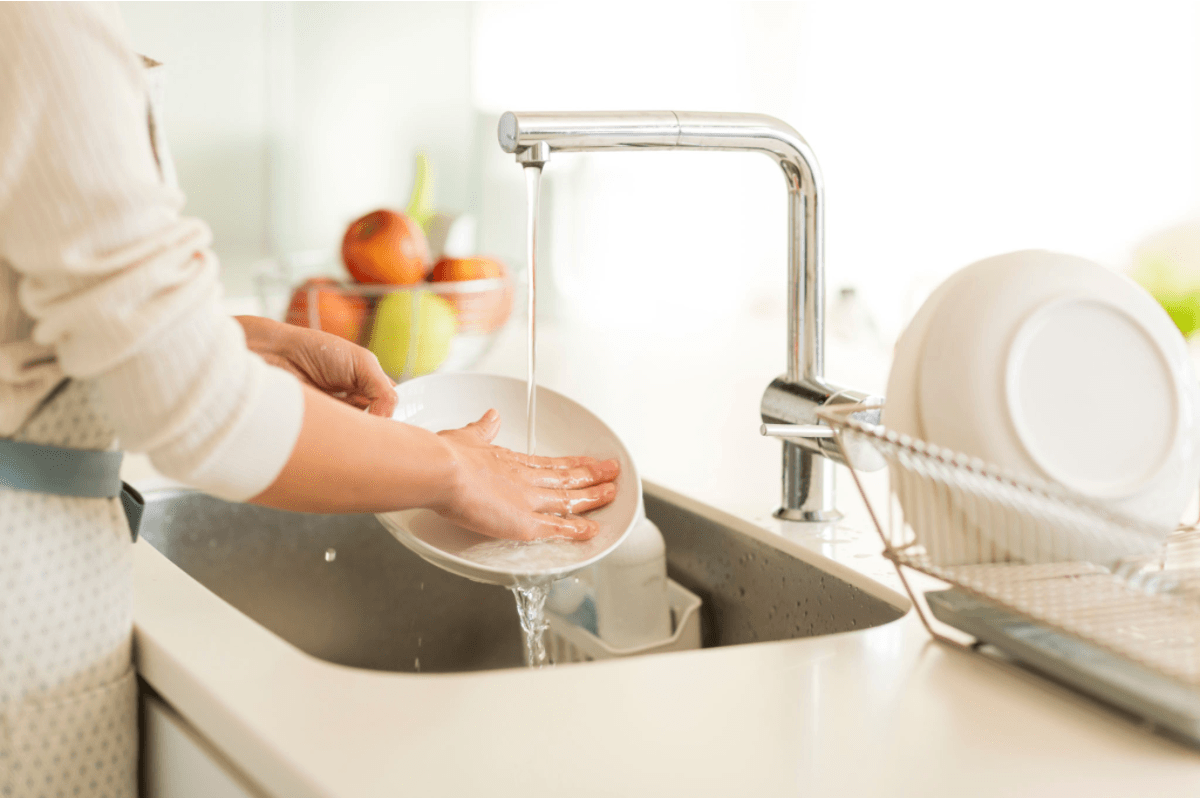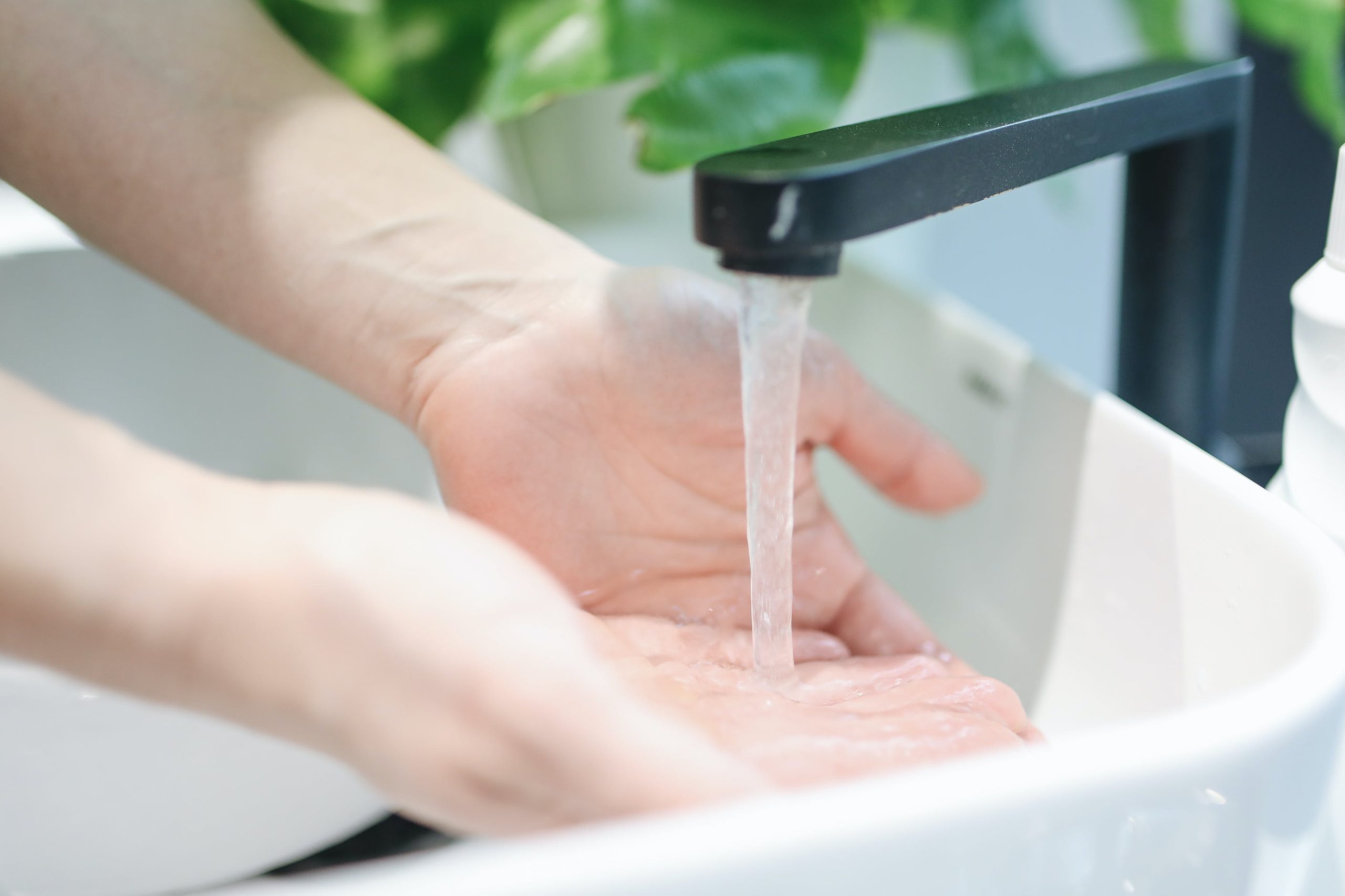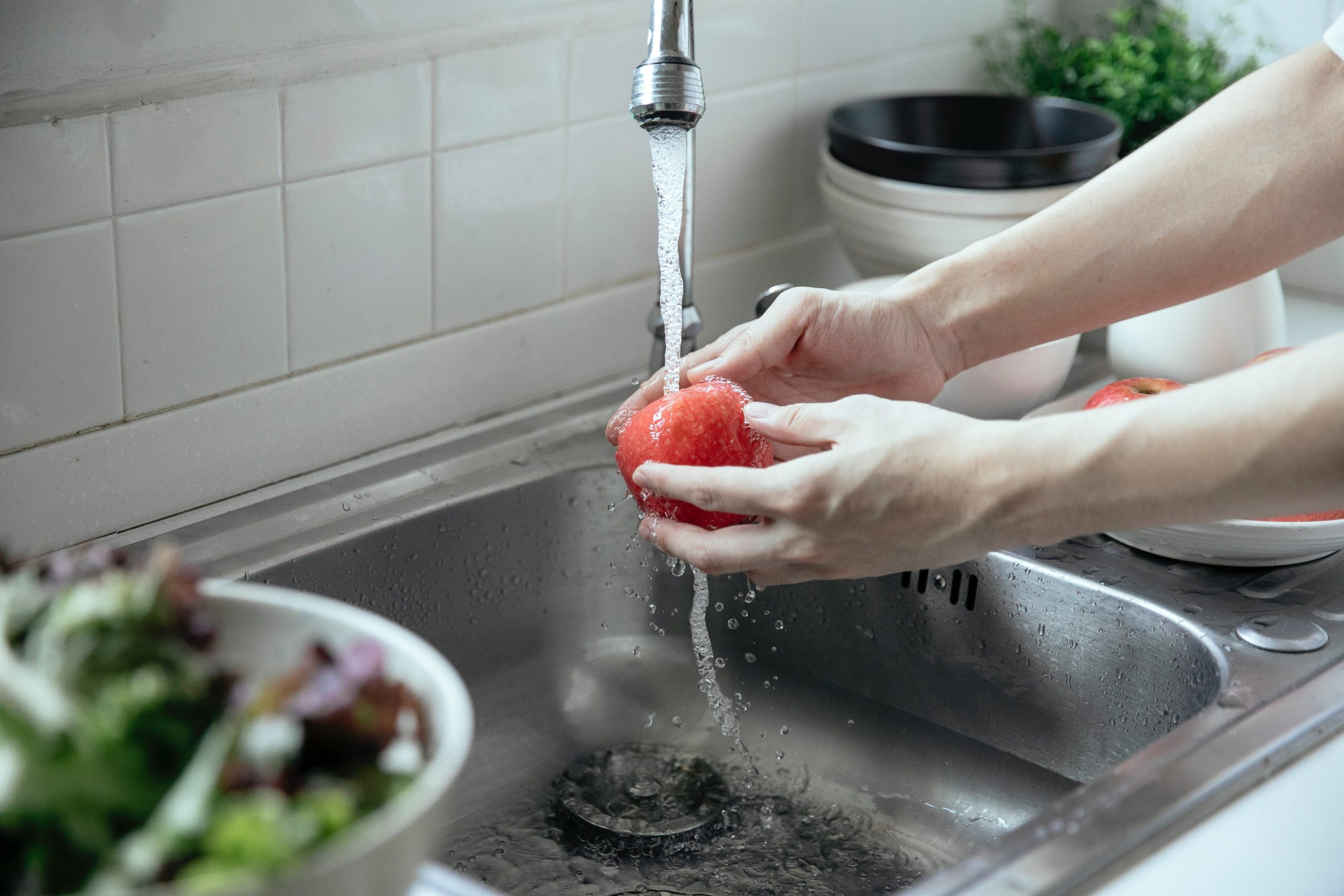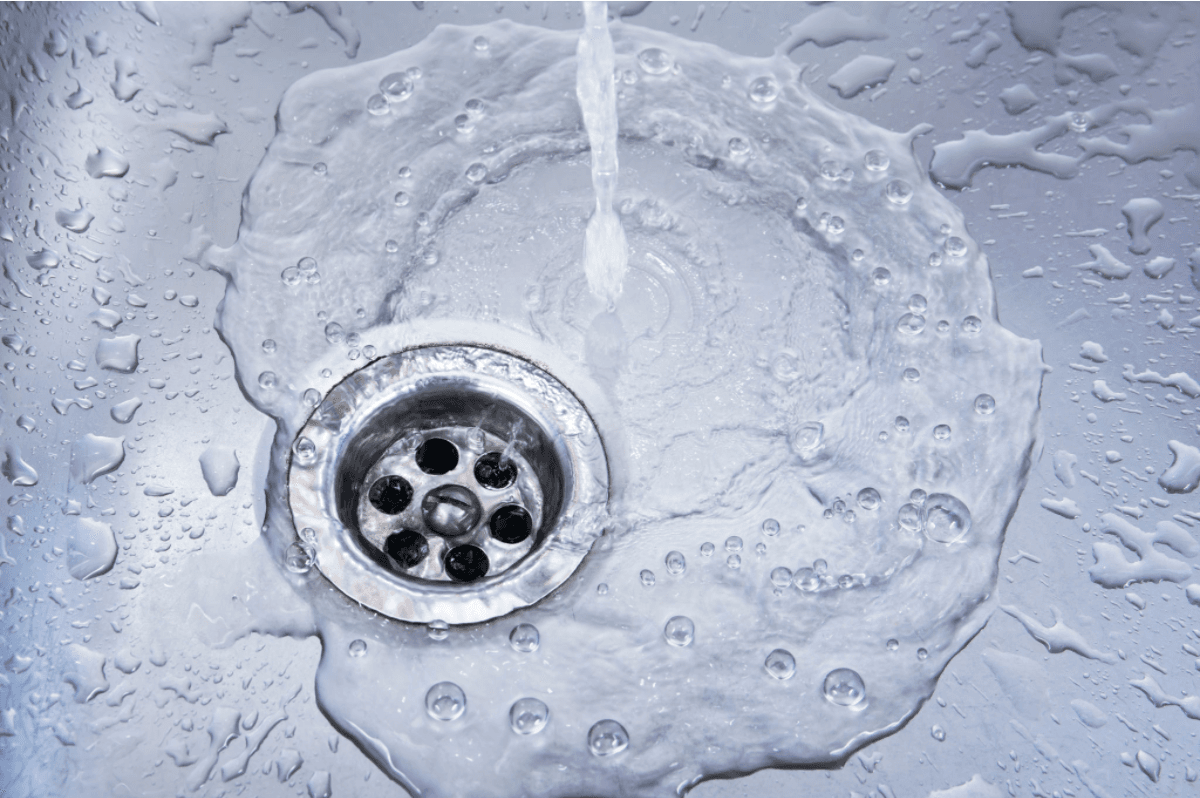A smoothly flowing plumbing system is one of the unsung heroes of our homes. We often take it for granted until a stubborn clog brings our daily routines to a halt. But fear not, for Service by Scott is here to guide you on how to keep your drains clog-free and your plumbing running like a well-oiled machine.
The importance of maintaining clear and clog-free drains cannot be overstated. It not only ensures the efficient functioning of your plumbing but also helps prevent costly and inconvenient disasters. A little prevention can go a long way, and this article will equip you with the knowledge and tips you need to achieve just that.
In the sections to follow, we’ll delve into various strategies and practices that can help you protect your drains from clogs and maintain a healthy plumbing system. From choosing the right drain covers to scheduling professional drain inspections, we’ve got you covered. So, let’s get started on your journey to hassle-free plumbing and say goodbye to frustrating drain clogs for good.
Choose the Right Drain Covers
When it comes to maintaining clog-free drains, one of the first lines of defense is choosing the right drain covers. These seemingly simple devices play a crucial role in preventing debris and foreign objects from making their way into your pipes. By selecting the appropriate drain covers, you can significantly reduce the risk of clogs and ensure the smooth operation of your plumbing system.
Types of Drain Covers
The world of drain covers offers various options to cater to your specific needs. Common choices include mesh or screen-style covers, hair catchers, and pop-up stoppers. Mesh covers are effective at trapping small debris, while hair catchers are designed to prevent hair from entering the drain. Pop-up stoppers, commonly found in bathroom sinks, offer a convenient way to control water flow and stop foreign objects from going down the drain.
Benefits of Using Drain Covers
Using the right drain covers comes with multiple advantages. These covers not only prevent clogs but also improve the overall hygiene of your plumbing system. They help in reducing foul odors caused by trapped debris and can save you from costly plumbing repairs down the road.
Proper Installation
Proper installation is key to maximizing the effectiveness of drain covers. Make sure to fit them securely in place, ensuring that there are no gaps around the edges where debris could slip through. Regularly remove and clean the covers to prevent buildup that may impede drainage. For some pop-up stoppers, periodic maintenance might be necessary to keep them in top working condition.
By investing in the right type of drain covers and ensuring their proper installation and maintenance, you’re taking a significant step towards preventing clogs and safeguarding your plumbing system. In the next sections, we’ll explore more strategies to keep your drains clear and your plumbing trouble-free.

Be Mindful of What Goes Down the Drain
To maintain clog-free drains and a smoothly functioning plumbing system, it’s crucial to be mindful of what goes down the drain. Many common household items can be detrimental to your pipes, and being aware of what to avoid can save you from the inconvenience and expense of dealing with clogs. Let’s explore the items you should be cautious about and learn how to dispose of them safely.
Items to Avoid
Several everyday items should never find their way into your drains. These include:
- Grease and Cooking Oils: Pouring grease or cooking oils down the drain may seem convenient, but they can congeal and create stubborn clogs in your pipes.
- Coffee Grounds: Coffee grounds don’t dissolve in water and can accumulate in your pipes.
- Eggshells: The membrane inside eggshells can wrap around other debris and create blockages.
- Produce Stickers: Those tiny stickers on fruits and vegetables are not biodegradable and can clog drains.
- Sanitary Products: Items like tampons and sanitary pads should never be flushed down the toilet.
- Paper Towels and Wet Wipes: These are not designed to break down in water and can lead to sewer line issues.
How They Contribute to Clogs
When these items go down the drain, they can accumulate, adhere to the pipe walls, and trap other debris, leading to clogs. Grease, in particular, is notorious for causing blockages because it can solidify when it cools down.
Safe Disposal Alternatives
To prevent these items from causing clogs, adopt safe disposal practices. Instead of pouring cooking oil down the drain, let it cool and solidify, then scrape it into the trash. Coffee grounds can be composted or thrown away in the garbage. Eggshells and produce stickers should be discarded in the trash, and sanitary products should be disposed of in the appropriate bins. Lastly, opt for biodegradable wet wipes and dispose of them in the trash rather than flushing them.
By being mindful of what goes down your drains and adopting proper disposal habits, you can significantly reduce the risk of clogs and maintain a smoothly flowing plumbing system. In the following sections, we’ll continue to explore effective ways to keep your drains clear and your plumbing hassle-free.
Regularly Clean Your Drains
When it comes to ensuring your plumbing system runs smoothly, regular drain cleaning is a practice that should not be overlooked. Over time, even with the best preventive measures, some debris and grime may accumulate in your pipes, potentially leading to clogs. By implementing routine drain cleaning, you can proactively prevent these issues and maintain a hassle-free plumbing system.
DIY Drain Cleaning Methods
You don’t always need to rely on professional plumbers for drain cleaning. Many minor clogs and maintenance tasks can be handled on your own. Some DIY methods for cleaning drains include using a plunger to dislodge minor obstructions, utilizing a drain snake or auger to remove deeper clogs, and using a mixture of baking soda and vinegar to break down and flush away grease and small debris.
When to Hire Professionals
For more severe or persistent clogs, it’s advisable to seek the expertise of professional plumbers, such as Service by Scott in Tyler County, Texas. They have the necessary tools and experience to tackle tough clogs and ensure a thorough cleaning. Professional drain cleaning can also identify underlying issues within your plumbing system and address them before they escalate into major problems.
Signs of Impending Clogs
Proactive drain cleaning can be prompted by recognizing early warning signs of impending clogs. These signs may include slow drainage in sinks, unpleasant odors coming from drains, or gurgling noises when water is draining. If you notice any of these symptoms, it’s an indication that it’s time to clean your drains before a major blockage occurs.
By making regular drain cleaning a part of your home maintenance routine, you can keep your plumbing system functioning optimally. Whether you opt for DIY methods or professional assistance, this proactive approach can help you avoid the frustration and inconvenience of unexpected clogs. In the upcoming sections, we’ll explore more strategies for preventing clogs and maintaining the health of your plumbing.

Monitor Water Temperature
Controlling the temperature of the water that flows through your plumbing system is a crucial aspect of preventing drain clogs. While it may not be immediately evident, water temperature plays a significant role in maintaining the health of your pipes. Let’s delve into how monitoring water temperature can contribute to clog prevention and a smoothly running plumbing system.
Impact of Hot Water on Grease and Soap
Hot water can be an effective ally in your battle against clogs, particularly in the kitchen. When you wash dishes with hot water, it helps to break down grease and soap residue more effectively than cold water. Grease can solidify in your pipes, leading to clogs, but hot water can help keep it in a liquid state, allowing it to flow more freely through your plumbing.
The Role of Cold Water in Preventing Clogs
On the flip side, cold water plays a critical role in other parts of your home, such as the bathroom. Cold water helps to prevent hair and soap scum clogs in the drains. It aids in solidifying soaps, which reduces the likelihood of soap residue clinging to the pipe walls. Additionally, cold water can prevent hair from binding to soap scum, making it easier to wash away.
By understanding the impact of water temperature on your plumbing system and adjusting it accordingly, you can proactively prevent clogs. In the kitchen, run hot water down the drain after using grease to help it move through the pipes. In the bathroom, use cold water when taking showers or washing your hands to minimize the chances of hair and soap clogs. This small but effective adjustment can go a long way in maintaining clear and clog-free drains. In the sections that follow, we’ll explore more strategies to keep your plumbing in top shape.
Maintain Your Garbage Disposal
Your garbage disposal is a valuable appliance in your kitchen, designed to shred food scraps and prevent them from entering your drain and causing clogs. To keep your plumbing system clog-free, it’s crucial to maintain your garbage disposal properly. Let’s explore how to use and care for this device to ensure it continues to operate efficiently.
Proper Use and Care
To maintain your garbage disposal, start by using it correctly. Only put small food scraps into the disposal. Avoid putting large, hard items, bones, or non-food materials down the disposal, as they can damage the blades and motor. Additionally, be cautious when disposing of starchy or fibrous foods, as they can create a thick paste that might lead to clogs.
Foods to Avoid Disposing
Certain foods are notorious for causing issues with garbage disposals. Some items to avoid include coffee grounds, eggshells, potato peels, fruit pits, and pasta. These can either damage the disposal or create clogs when they mix with grease and other debris in your pipes.
Common Disposal Problems and Solutions
If you encounter issues with your garbage disposal, it’s essential to address them promptly. Common problems include jammed blades, foul odors, and unusual noises. You can often resolve these problems by resetting the disposal, using ice cubes to clean the blades, and eliminating odors with baking soda and vinegar. Regularly cleaning and maintaining your disposal can extend its lifespan and prevent clogs that could potentially affect your entire plumbing system.
By maintaining your garbage disposal, you can prevent food scraps from becoming a source of clogs in your drains. Proper use and regular care of this appliance will help keep your plumbing system clog-free and functioning optimally. In the sections that follow, we’ll continue to explore strategies for maintaining a hassle-free plumbing system.
Use Eco-Friendly Drain Cleaners
When it comes to keeping your drains clog-free and your plumbing in top shape, one essential strategy is the use of eco-friendly drain cleaners. Traditional chemical drain cleaners can be harsh on your pipes and the environment, but there are safer, more environmentally conscious alternatives. In this section, we’ll explore the benefits of eco-friendly drain cleaners and how to use them effectively.
Safe Alternatives to Chemical Drain Cleaners
Chemical drain cleaners are known for their caustic ingredients, which can harm your pipes and create fumes that are harmful to the environment and your health. Eco-friendly drain cleaners, on the other hand, are typically made from natural enzymes and bacteria that break down clogs without causing damage. They are biodegradable and pose no harm to your plumbing or the ecosystem.
Homemade Drain Cleaning Solutions
In addition to commercially available eco-friendly drain cleaners, you can create your own natural solutions using common household items. A mixture of baking soda and vinegar is an effective, chemical-free way to break down clogs. This combination creates a chemical reaction that can help dislodge debris and clear your pipes.
When to Consult a Plumber
While eco-friendly drain cleaners are effective for many clogs, there may be instances where professional help is required. If you encounter persistent or complex clogs that cannot be resolved with these eco-friendly solutions, it’s advisable to seek the assistance of a professional plumber. They have the tools and expertise to tackle more challenging clogs and assess your plumbing system’s overall health.
By incorporating eco-friendly drain cleaners and homemade solutions into your drain maintenance routine, you can prevent clogs without harming your plumbing or the environment. These alternatives are not only effective but also promote sustainability and responsible plumbing practices. In the next sections, we’ll continue to explore strategies for maintaining a smoothly running plumbing system.

Install a Water Softener
Water quality plays a significant role in the health of your plumbing system. Hard water, which contains high levels of minerals like calcium and magnesium, can lead to several plumbing issues, including clogs. Installing a water softener is an effective strategy to counteract the effects of hard water and maintain your plumbing in excellent condition.
How Hard Water Affects Plumbing
Hard water is notorious for leaving mineral deposits within your pipes and appliances. Over time, these deposits can accumulate, reducing the flow of water and potentially leading to clogs. They can also affect the efficiency of water heaters, dishwashers, and other appliances that use water, ultimately reducing their lifespan.
Benefits of Water Softeners
Water softeners work by removing the minerals responsible for hard water, creating softer and less damaging water for your plumbing system. By investing in a water softener, you can prevent the buildup of mineral deposits, reduce the risk of clogs, and extend the life of your plumbing and appliances. Additionally, soft water is gentler on your skin and hair, making it a welcome addition to your daily life.
The Installation Process
The installation of a water softener is a task best left to professionals. They will assess your water supply, determine the appropriate size and type of softener, and ensure that it’s correctly connected to your plumbing system. Once installed, the water softener will work to remove minerals and provide you with the benefits of softer water throughout your home.
Investing in a water softener is an excellent way to prevent clogs and maintain your plumbing system’s health. It not only protects your pipes from mineral buildup but also enhances the overall quality of your water. In the upcoming sections, we’ll continue to explore effective strategies for preserving the condition of your plumbing and preventing clogs.
Schedule Professional Drain Inspections
When it comes to maintaining a clog-free plumbing system, scheduling regular professional drain inspections is a proactive approach that can’t be overstated. These inspections are the key to identifying potential issues within your plumbing before they escalate into major problems. At Service by Scott, we take pride in offering comprehensive drain inspection services to ensure the longevity and reliability of your plumbing system.
Importance of Routine Inspections
Regular drain inspections are akin to routine check-ups for your plumbing. They are essential in identifying hidden issues that may not manifest as noticeable clogs or blockages. During these inspections, our team of skilled technicians will assess your drain lines and plumbing system for any signs of damage, corrosion, or blockages. By identifying these issues early on, we can recommend preventive measures to safeguard your plumbing.
How Professionals Identify Potential Issues
Our professional plumbers at Service by Scott employ a range of advanced techniques and tools to thoroughly inspect your drain system. This may include video camera inspections to navigate the inner workings of your pipes and pinpoint potential trouble spots. With these inspections, we can identify issues such as tree root intrusion, cracks, blockages, or misaligned pipes that may lead to clogs.
Preventive Measures Based on Inspections
After the inspection, our team will provide you with a detailed report of their findings and, if necessary, recommend appropriate preventive measures. This may include drain cleaning, pipe repairs, or adjustments to your plumbing system. By taking these steps proactively, you can avoid the inconvenience and expense of major plumbing disasters caused by unnoticed issues within your drains.
At Service by Scott, we are committed to the long-term health of your plumbing system. Our professional drain inspections are a testament to our dedication to providing you with reliable and preventive plumbing solutions. By scheduling these inspections, you’re taking a significant step toward keeping your plumbing clog-free and in excellent working order.

Conclusion
In the world of plumbing, prevention is truly the best cure. Clog-free drains are not only essential for your daily convenience but also for the overall health and longevity of your plumbing system. By adopting the strategies outlined in this article, you can ensure that your pipes remain clear, your water flows freely, and your plumbing remains trouble-free.
We’ve explored the importance of choosing the right drain covers, being mindful of what goes down the drain, regularly cleaning your drains, monitoring water temperature, maintaining your garbage disposal, using eco-friendly drain cleaners, and installing a water softener. Each of these strategies plays a vital role in preventing clogs and ensuring your plumbing system operates at its best.
At Service by Scott, we’re not just here to provide you with guidance; we’re also your trusted partners in maintaining your plumbing system. With over 30 years of experience serving Woodville, Texas, and the surrounding areas, our commitment to delivering reliable and professional plumbing services is unwavering. We offer 24/7 emergency service, handle both residential and commercial plumbing needs, and specialize in everything from drain inspections to slab leak detection and repair.
In conclusion, whether you’ve already encountered the frustration of a clogged drain or simply wish to prevent it from happening, the proactive strategies discussed in this article are your best allies. To ensure the ongoing health and longevity of your plumbing system, contact Service by Scott today. Let us be your dedicated plumbing experts, working tirelessly to keep your drains clear and your plumbing running smoothly. Don’t wait until clogs become a major problem—take action now and enjoy the peace of mind that comes with a clog-free plumbing system. today and experience the Service by Scott difference. Your plumbing deserves nothing less.
FAQs
Why do drains get clogged so easily?
Drains can get clogged due to the accumulation of debris, grease, soap scum, and foreign objects over time. These materials can restrict the flow of water and lead to blockages in your pipes. Regular maintenance and following preventive measures can help prevent clogs.
Can I use chemical drain cleaners to fix clogs?
While chemical drain cleaners can be effective for some clogs, they often contain harsh chemicals that may damage your pipes and harm the environment. It’s recommended to use eco-friendly and natural alternatives to prevent potential negative side effects.
How often should I clean my drains?
The frequency of drain cleaning depends on your usage and the specific area. Kitchen drains may require more frequent cleaning due to the potential for grease buildup, while bathroom drains may need less frequent maintenance. Regularly inspect your drains and clean them when you notice slow drainage or other signs of potential clogs.
What’s the best way to prevent hair clogs in bathroom drains?
To prevent hair clogs in bathroom drains, consider using a hair catcher or strainer over the drain. These devices can catch hair and other debris before they enter the pipes. Additionally, regular cleaning and maintenance of your bathroom drains can help prevent clogs caused by hair and soap scum.
When should I call a professional plumber for drain issues?
You should consider calling a professional plumber for drain issues when you encounter persistent or severe clogs that don’t respond to DIY solutions. Additionally, if you notice slow drainage in multiple areas of your home, foul odors, or gurgling noises, it’s a sign that there may be more significant plumbing problems that require expert assessment and repair. Service by Scott is here to assist with any plumbing issues, from clogs to comprehensive drain inspections and repairs.

